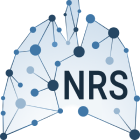Melgert, Gosens and Salvati receive ZonMW grant to study the effects of microplastic fibres on the lungs
Melgert, Gosens and Salvati receive ZonMW grant to study the effects of microplastic fibres on the lungs
Prof. Barbro Melgert, Prof. Reinoud Gosens and Dr. Anna Salvati (GRIP) have been awarded one of fifteen grants in a pioneering ZonMW programme dedicated to research into the health risks associated with plastic.
The ZonMW programme, in which a total of 1.6 million euro is invested by ZonMW, NWO, the Gieskes-Strijbis Fonds and the Ministry of Infrastructure and Water Management, is the first scientific programme globally to investigate the effects of micro- and nanoplastics on our health. The awarded projects are short-running in order to provide fast answers to the most burning questions regarding these omnipresent microplastics, to which we are exposed every day through the air that we breathe and the food that we eat.
The ZonMW programme, in which a total of 1.6 million euro is invested by ZonMW, NWO, the Gieskes-Strijbis Fonds and the Ministry of Infrastructure and Water Management, is the first scientific programme globally to investigate the effects of micro- and nanoplastics on our health. The awarded projects are short-running in order to provide fast answers to the most burning questions regarding these omnipresent microplastics, to which we are exposed every day through the air that we breathe and the food that we eat.
The topic of the project lead by Prof. Melgert is the impact of microplastic fibres on our lungs. Indoor dust contains vast amounts of small plastic fibres. These microfibers are small enough to be inhaled and plastic fibres have been detected in all samples of lung tissue of patients investigated for lung cancer. Owing to their size, shape and resistance to biological degradation, these microfibers have the potential to cause respiratory disease. Other types of air pollution (diesel exhaust, cigarette smoke) can adhere to microfibers and these chemicals may cause additional stress or toxicity to lung cells, making it harder for these patients to fight respiratory infections. At present, no studies have explored whether microfibers can affect cells in lung tissue. In this project, we aim to investigate the effects of microfibers, with and without adhered pollutants, on the cells that line the airways, because these are the first to come into contact with inhaled microfibers.
More information about the programme can be found on the websites of ZonMW and the Plastic Soup Foundation

